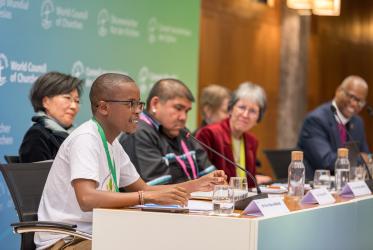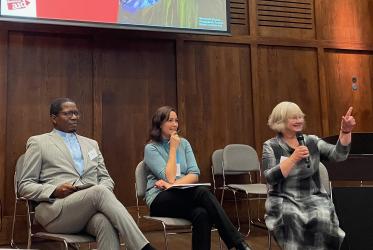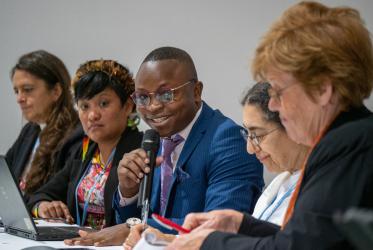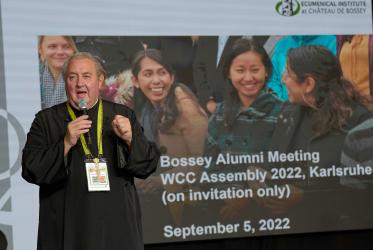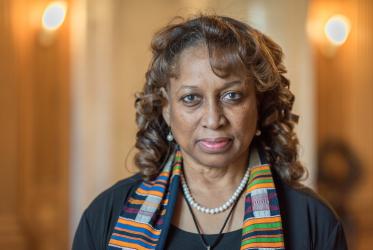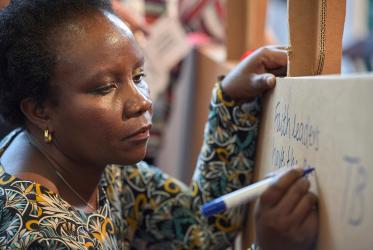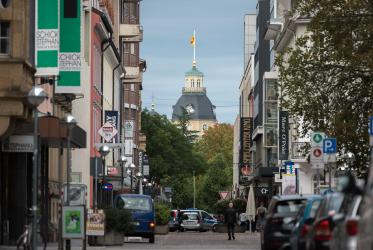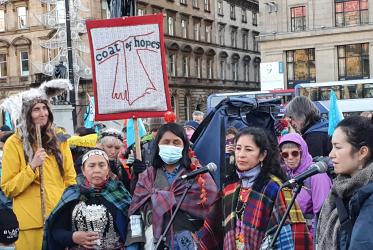Displaying 1 - 20 of 99
WCC president from Europe reflects at Christian Aid assembly
21 November 2023
COP side event explores how to deliver on the promise of adaptation
16 November 2022
Ukraine: Responding to humanitarian need
08 September 2022
Rev. Dr Angelique Walker-Smith receives Figel Ecumenism Award
25 February 2022
WCC executive committee lights the way for WCC 11th Assembly
26 November 2021
Protecting Ethiopia’s church forests
27 October 2021
Climate crisis fuels existing water injustice
27 October 2021

